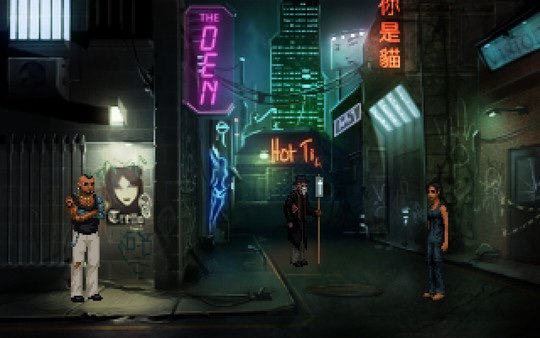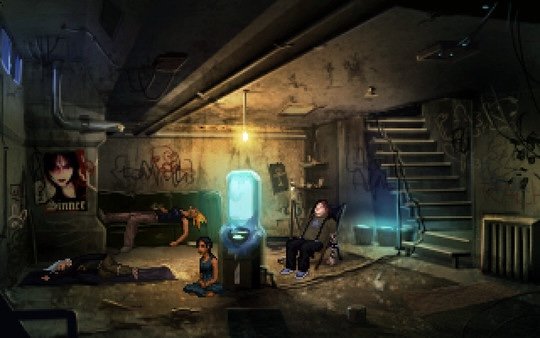Technobabylon: A Gaming Glimpse into AI's Potential Future
Welcome to another deep dive into the world of artificial intelligence (AI) as seen through the lens of video games. Today's focus is the point-and-click adventure game "Technobabylon", a captivating narrative set in a future where AI permeates every facet of society.
The Intersection of AI and Gaming
Video games, as interactive mediums, have often been a platform for exploring futuristic ideas, including those surrounding AI. They provide thought-provoking narratives about AI, engaging players in stories that prompt reflection on the potential societal impacts of advanced AI.
Unraveling Technobabylon
Technobabylon transports players to the year 2087 in the city of Newton. Here, an AI entity known as Central, developed by Dr. Charles Regis, governs the city. Central is imbued with sweeping authority, managing aspects from law enforcement to citizen welfare.
The game's characters, including genetically modified agent Dr. Max Lao, rogue AI Latha Sesame, and the AI's creator Dr. Regis, find themselves entwined in a complex plot that asks profound questions about privacy, autonomy, and the role of AI in governance.
The Intriguing Concept of Wetware
Technobabylon introduces the concept of "wetware," a technology that blends the biological with the digital. Citizens of Newton use wetware to connect their minds directly to the Trance, a version of the internet. This constant connection offers various benefits, from communication to information access. However, it also raises questions about privacy and the boundaries between human consciousness and digital spaces. It presents a future where the line between human and AI becomes blurred, echoing current debates about the integration of AI into everyday life.
Reflections from Technobabylon
Technobabylon isn't just a game; it's a window into a potential future. It presents an environment where AI is both beneficial and potentially detrimental. While Central's control over Newton leads to a city almost devoid of crime, the citizens' privacy, especially in the context of wetware use, is severely compromised.
This duality echoes the real-world discourse around AI, where its potential to do good is weighed against the risk of misuse or over-reliance. Technobabylon prompts players to consider these aspects, making it not just an entertainment source but also a conversation starter about the ethics and implications of AI.
Referencing Other AI Narratives in Gaming
While Technobabylon provides a compelling view of a possible AI future, other games also tackle this subject. Notably, Detroit: Become Human, a choice-based game, presents a different facet of AI, exploring themes of AI consciousness, identity, and the moral implications of AI-human interactions.
Additional Resources
If you're interested in exploring the portrayal of AI in video games further, consider these titles:
"Her Story": An interactive movie game that uses AI to help players solve a mystery.
“Whispers of a Machine”: Whispers of a Machine is a Sci-Fi Nordic Noir that tells the story of Vera, a cybernetically augmented detective in a post-AI world, who investigates a string of murders and unravels a dark conflict over forbidden technology.
"Oxenfree": A supernatural thriller game that incorporates AI into its narrative.
"Life is Strange": While not focusing on AI, it explores the concept of choice and consequence, themes prevalent in discussions about AI ethics.
Technobabylon offers a compelling exploration of a future where AI's influence is far-reaching. While its narrative is fictional, the themes it explores resonate with the real-world discourse surrounding AI's role in society. As we continue our journey into the digital age, such narratives serve as catalysts for vital conversations about AI's potential impacts.
P.S - This game is amazing. Go play it.



